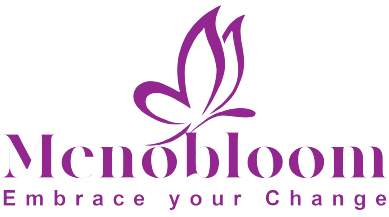I am fascinated by this topic, and I wanted to share some findings from various published research and reports, that I have been reading recently on this subject to try to answer, (at least in part), the question ‘are there really cultural differences in the attitudes and symptoms of the menopause’’?
Personally I feel that we, and many other parts of the Western world, have adopted a negative approach to the menopause. It seems to be a Western highlight.
It often feels like we're being put out to pasture, like we're finished, we're over and we've had our day. We hear so much more about the negative aspects of the menopause, and very rarely do we talk about the positive things that it brings, such as celebrating our achievements as women, our newfound freedom or our sexuality. Instead, we hear about hot flushes, HRT, brain fog and joint pain. Yes, these are common perimenopausal symptoms that many women face, but the menopause is much more than just these symptoms. It's about re-energizing our bodies, regaining our newfound freedom, finding space and time for ourselves, learning more about who we are, rekindling our sexuality and revitalizing our womanhood.
Are there cultural differences in the menopause? Yes, there certainly are.
In some cultures, women hardly experience menopausal symptoms, and women who are going through the menopause transition are highly respected, valued and given exalted positions in their society.
For example, Japanese women rarely mention “oestrogen depletion,” and prefer to talk about ‘hormonal balance. Their way of dealing with their perimenopausal transition does not involve replacing oestrogen. Their rates of experiencing hot flushes are lower than some other cultures in the West. The most common menopausal symptom in Japanese women appears to be shoulder stiffness.
The Japanese word for the menopause is konenkit where ‘ko’ means renewal and regeneration, ‘nen’ means year or years, and ki means season or energy, so the menopause is viewed as being positive rather than a negative part of a woman’s life.

In Traditional Chinese Medicine (TCM), the menopause is called the 'Second Spring' in a woman's life. It represents the renewal of energy and opportunities as there is a shift from fertility and reproduction to conserving and nourishing the self.
In Chinese culture, there is a sense of looking forward to old age, as ageing is celebrated and elders are revered. With age comes the gift of wisdom, inner confidence and building on life experiences.
The sophisticated ancient Mayan culture (southern American ancient culture), has not completely died out. Several pockets of Mayans still live in the rural regions of Guatemala, Chichimilá and in the Yucatán peninsula of Mexico. Woman from these tribes have been interviewed regarding their health and the menopause. Scientists have been fascinated by these rural Mayan women and how they deal with what we would call ‘traditional menopausal symptoms’ such as hot flushes, mood swings, and insomnia.
Research has shown that Mayan women overall go through the menopause at around 44 years, much earlier that their Western counterparts. What is also surprising is that the women in Chichimilá, like Japanese women, seem to avoid osteoporosis, and although their oestrogen levels drop during the menopause, just like Western women, and they experience a reduction in bone mineral density, as do Western women, they do not appear to have an increase in bone fractures or osteoporosis.
What I find interesting is that Mayan women, regardless of experiencing menopausal symptoms appear to look forward to the menopause and their newfound freedom and status. For those of us who lie awake in bed at night, burning up one moment and then freezing the next, or suffering bouts of depression and sadness, this optimism can seem surprising.
Naturally, we are all wondering what the secret is for such good health and positivity. A woman’s menopausal symptoms cannot be viewed in isolation, it is a combination of factors, including geographical, genetic, nutritional, historical, and cultural factors, and an attitude of mind.
For years, Western medicine has minimised the importance of the menopause by treating it mainly as a biological issue, when there is really more at play.
The Mayans, have an all-natural, herb-based diet, and have a slow, easier pace of life, both attributes contribute heavily to fewer menopausal symptoms. These thoughts have been emphasised at Women’s Health Network for years. Mayan women also acquire a new status when they enter their menopause - they can become spiritual leaders of their communities and are given much respect.
Across Indigenous cultures, from the Maori in New Zealand, to the Iroquois Indians (First Nations peoples in northeast North America and Upstate New York), post-menopausal women are community leaders with considerable power and status. To these cultures, the menopause itself is the transition between being a member of the community at large to becoming a spiritual elder.
A common belief among traditional shamanic cultures - such as, Mayan women and the Cree women of Canada - is that women must enter the menopause to access their shamanic and healing powers. Menstrual blood has the power to create life in the womb, so when women reach the age of retaining their “wise blood,” they cross the threshold into “wise womanhood” by keeping their wise blood within. At this point they become priestesses and healers - the spiritual leaders of their communities.
Wise women have earned this leadership role because women have greater “reproductive” success if, in middle age, we cease production of new children and focus on investing in our children’s children. This in turn impacts the population and success of the entire community. It is no wonder the Mayans and other traditional cultures around the globe place older women at the centre of their societies — it is in their best interest to survive.
This approach happens in our culture too, where women give up work early to look after their grandchildren and support their families by doing so however, this is often overlooked and undervalued in our culture.
In contrast, The Study of Women’s Health Across the Nation (SWAN), found that Black women spend more time in the menopause transition than white women. Decades of research has revealed that Black women reach their menopause at around 49 years, two years earlier than the national average age for white women which is 51 years.
The study indicated that Black women more often report hot flushes and night sweats. In a 25-year study on the menopausal transition of women, researchers found that Black women were more likely to reach menopause 8.5 months earlier than white women — and have worse symptoms like depression, untreated hypertension, and sleep disturbances.

Despite this, Black women did not in general, find the menopause intimidating and many just get on with it and adapt to the change. It is argued that racism, poor socioeconomic levels, greater life stresses, which many Black women face, could contribute towards this longer menopausal transition, but no one really knows, and there is a lot more research to be done here.
Overall, we still have a lot to learn from other cultures that will help our own society support and encourage women to embrace their menopausal experiences positively. we can then start to create a culture of positivity and gain a much deeper understanding of the menopause from an integrated approach, which looks at biological, genetic, lifestyle and wellness approaches to adapting positively to the menopause. It will mean that we do not just talk about the symptoms of menopause, or pay lip service to the menopause journey but actively support the change in women both at home and in the workplace.
To develop, our society we must recognise that the menopause is pivotal stage in a woman's life that should be harnessed, understood, respected and embraced.

